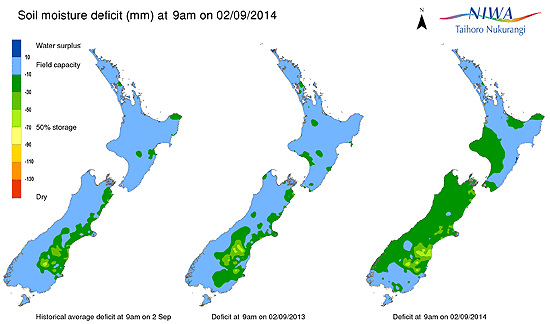
Here are the key things you need to know before you leave work today.
TODAY'S MORTGAGE RATE CHANGES
There were no home loan rate changes today.
TODAY'S DEPOSIT RATE CHANGES
Both SBS Bank and related HBS Bank have raised short term deposit rates over the terms 3 months to nine months.
WE'RE WATCHING YOU
Credit rating agencies have their eye on the big Aussie banks. Moody's today noted they have vulnerability to offshore funding availability and costs. "Given that Australian banks' structural reliance on wholesale funding markets remains a key credit sensitivity, how they manage their funding and liquidity, as credit growth picks up, will represent an important rating focus."
DOWN BUT NOT OUT
The ANZ commodity index saw the overall world price fall -3.3% in August (that's a -7.2% fall year-on-year). Falls were expected and perhaps this was not as sharp as some had feared. Dairy prices along with apple prices drove the fall. But it was not all one-way. Rises were recorded by beef, aluminium and wool. And because the NZD fell at the same time, the overall index in NZ currency was only down -0.4% (although on that basis the year-on-year decline is over -12%).
NZ GOVT IN THE BEST COMPANY, BANKS NOT SO MUCH
When our investment grade institutions access the international bond and funding markets, they are currently paying a credit spread of 82 bps. That is down from 99 bps at the beginning of the year, and down from over 440 bps at the height of the GFC. Equivalent American borrowers are only paying 57 bps spread. But New Zealand as a sovereign borrower has a much bigger advantage. It only pays 27 bps today and that is the lowest we have recorded since we started monitoring in early 2013. (Anyone help us with daily data going back earlier?) 27 bps is low, about the same as for Australia. The US and UK are both under 20 bps, Germany about 20. China is 71, Japan is 38. The country who pays the least is Norway, only 13 bps.
IS BEEF THE NEW DAIRY?
Beef, wool and venison prices are climbing, showing that the rural economy has more going for it that dairy.
RARKING IT UP
TV3's John Campbell has today tweeted: "Dear ChCh, ALL unresolved earthquake claimants are invited to Shirley Boys High School this Thurs (from 6) for a 4th anniversary programme." Expect the insurance industry reputation to be put under [unfair? - or fair?] scruitiny. Seems like a stacked deck to me.
TALKING IT UP
If you are Christchurch ratepayer, how do you feel about the call for the City to bid for the 2026 Commonwealth Games?
WHOLESALE RATES
Swap rates fell today, about -3 bps across the whole curve. The 90 day bank bill rate was unchanged at 3.70%.
OUR CURRENCY
Check our real-time charts here. The NZ dollar is now at 83.6 USc, now at 89.8 AUc and the TWI is at 79.1 following a small adjustment down after the commodity price data was released.
You can now see an animation of this chart. Click on it, or click here.
3 Comments
Bet you don't get 56 comments today, David. We're exhausted.
Aussie $ dropping today?
http://www.smh.com.au/business/markets/currencies/yens-dive-leads-austr…
Need AUD up to .95 plus in time for Christmas holidays across the ditch.
When our investment grade institutions access the international bond and funding markets, they are currently paying a credit spread of 82 bps. That is down from 99 bps at the beginning of the year, and down from over 440 bps at the height of the GFC. Equivalent American borrowers are only paying 57 bps spread.
Credit spread to which benchmark?


We welcome your comments below. If you are not already registered, please register to comment
Remember we welcome robust, respectful and insightful debate. We don't welcome abusive or defamatory comments and will de-register those repeatedly making such comments. Our current comment policy is here.